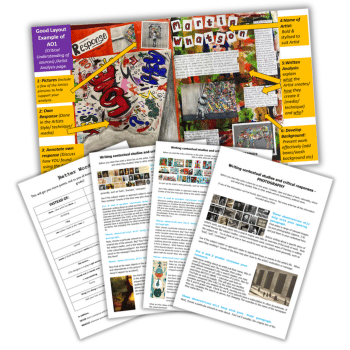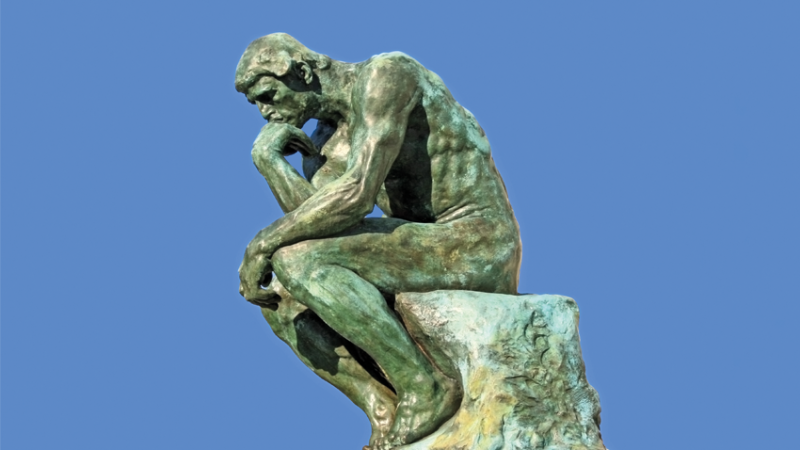Media literacy – Young people can Google knowledge, but not wisdom

We should be doing far more to help young people navigate the vast and all-encompassing modern media landscape, says John Lawson

- by John Lawson

Robin Smith was among the very best batsmen for England when it came to dealing with seriously fast bowling. Smith averaged a respectable 43.67 across 62 test matches from 1988 to 1996 – but his career sadly collapsed once opponents realised he couldn’t read spin.
Anyone regularly following today’s increasingly polarised news media – including our students – must learn to distinguish between spins of commission and omission.
My hair conditioner is supposedly ‘seven times more moisturising’ than other leading brands. My jar of coffee provides ‘210 cups’ (albeit thimble‐sizes ones, presumably).
A recent university lecture revealed that during the protracted miners’ strikes of the 1980s, the BBC came under pressure from Downing Street and duly highlighted every instance of miners opting to return to work. It was left to Channel 4 News to tell us how many miners were actually joining the strikes.
Inflammatory rhetoric
In the here and now, nurses were recently offered a taxable rise of £1,300 – but if they’ll be expected to pay £1,200 on newly reintroduced annual parking fees, doesn’t that amount to a pay cut?
LBC radio presenter James O’Brien recently examined how certain tabloids spun particular stories concerning the Royals. During her pregnancy, pictures of Kate Middleton touching her bump were accompanied by reports approving of her ‘maternal instincts’. When Meghan Markle did the same, it became ‘attention‐seeking behaviour’ deemed worthy of excoriating character analyses by the same paper’s resident psychologist.
Over a further 29 examples, O’Brien showed how stories would be routinely spun to present Markle as the wicked witch of a media-created pantomime.
Closer to home, meanwhile, the national press will regularly and ruthlessly expose the perceived professional and personal failures of teachers across the country, but these often won’t constitute factual news. Rather, they’re intended to provoke readers’ suspicions of rampant ‘wokery’, and in the worst cases, amount to straight-up inflammatory rhetoric.
Twisted words
Our schools should be obligated to teach teens media literacy. When we imply that all news is reported objectively, we effectively do the opposite of educating.
Tomorrow’s judges, journalists, politicians and, yes, teachers can be found sitting in today’s classrooms. It’s imperative that we teach children the importance of compassion, justice, integrity and honesty. Our primary responsibility isn’t to be ‘politically correct’, but to be as morally, factually, and contextually correct as possible.
Similarly, I find myself longing for media outlets willing to act as proud and truthful voices for the otherwise unheard. When powerful figures seek to oppress the innocent and powerless, I take solace and inspiration from seeing people I admire courageously challenging those forces.
Honest educators will rarely, if ever, speak from explicitly ‘left’ or ‘right’ perspectives because they know full well that right and wrong are seldom the sole preserve of either side.
The finest teacher I ever had, Mr. Wright, once taught me how ‘twisted words’ are the most effective weapons of mass destruction that modern societies have ever seen. Alas, he was later ‘invited to retire’ after connecting the ‘rape of Africa’ (his words) to the greed and wealth of the British Empire, which prompted a parent to complain.
Mr Wright consistently refused to sanitise the extent of man’s inhumanity to man, but at the same time he never deployed the term ‘white privilege’. Nor did he ever encourage hatred of any kind, though he did insist upon on students digging deep for objective facts.
History, he insisted, is often ‘his story’ – that is, thoroughly spun stories detailing the exploits of male exploiters. As wonderful as Google may be, it remains abundantly clear that we still need teachers driven by a passion for relaying important truths to help us spot the googlies that seek to deceive us.
John Lawson is a former secondary teacher, now serving as a foundation governor while running a tutoring service, and author of the book The Successful (Less Stressful) Student (Outskirts Press, £11.95); find out more at prep4successnow.wordpress.com or follow @johninpompano











